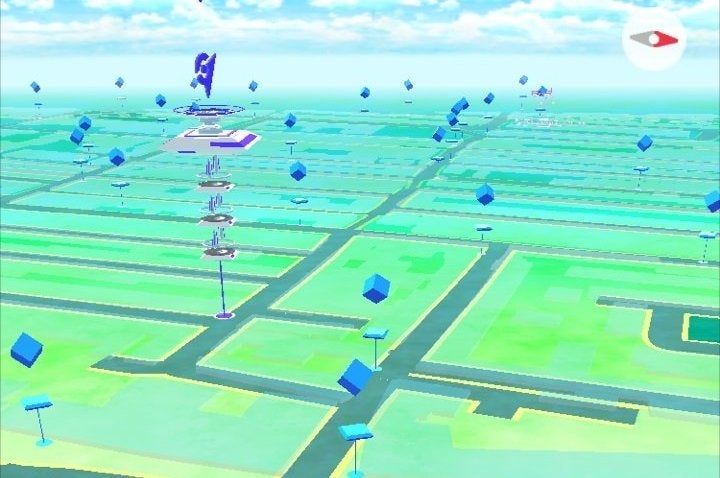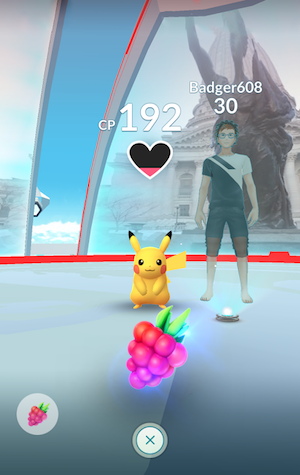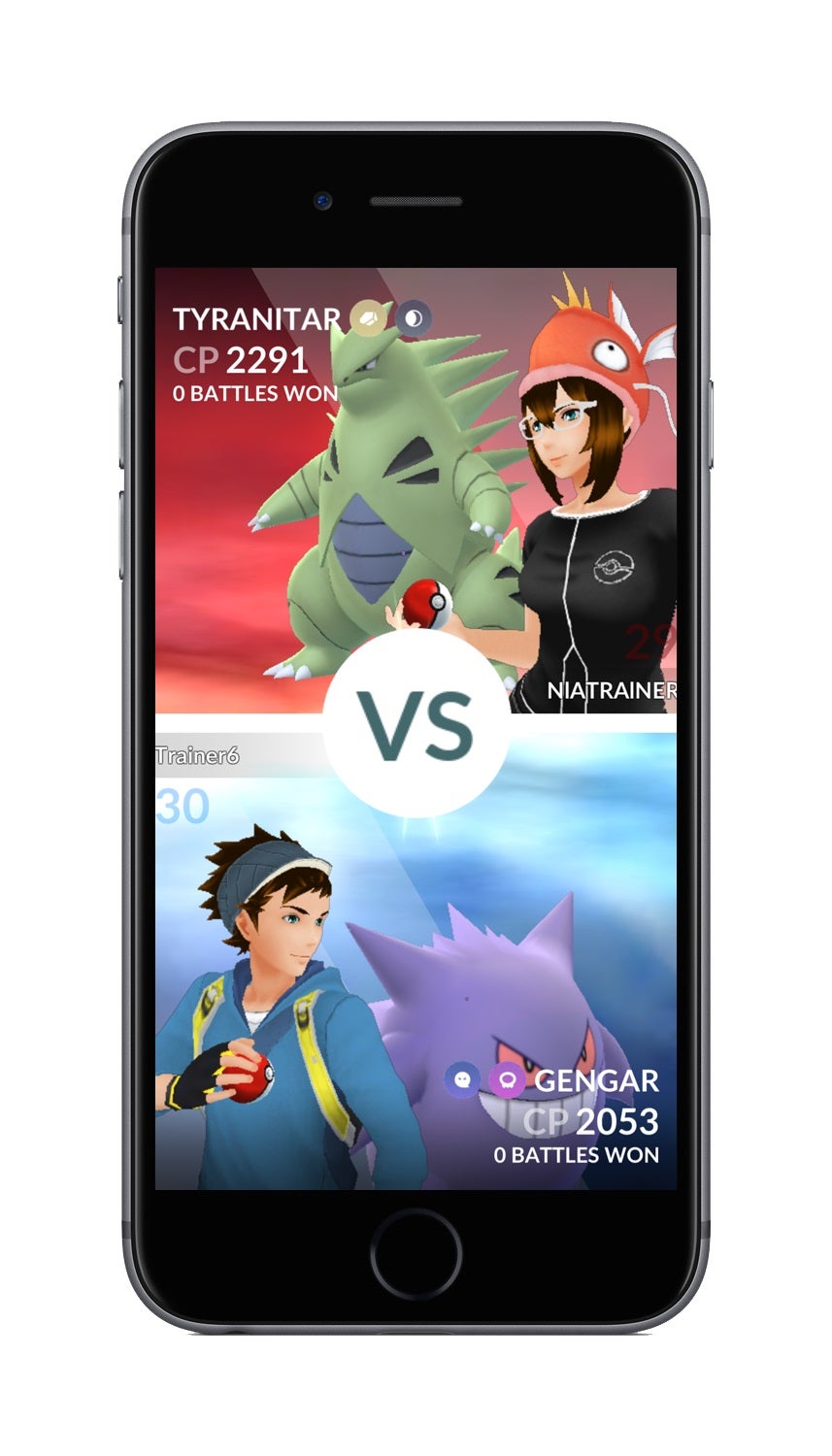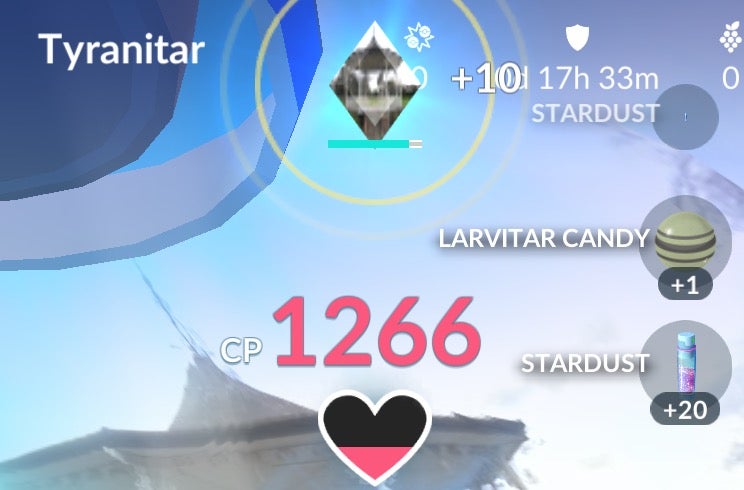The differences between the teams are purely cosmetic, but it’s worth siding with the same team as a friend, allowing you to tackle Gyms easier. Once you have joined a team, you can help defend or challenge Gyms at your leisure. Things have changed since Gyms first launched though; gone is the Prestige system and the 10 Pokémon limit, and in comes a new system focused on Motivation, some new items, and even some Gym Medals, too. On this page: Whilst there will always be some small specifics uncovered by the community long after the update, we already know plenty. Here’s a quick summary of what’s changed, before we dive into more detail on the various new points in the other sections below! Pokémon Go Gym update details:
Gyms now also work like PokéStops, with a photo disc that can drop items. There are now Gym Badges to unlock and level up - more on those in our Gym Badges guide! Gyms no longer have levels, or Prestige. Gyms can now contain only six slots for defending Pokémon. You can now also only have one Pokémon from each species. Motivation is a newly introduced mechanic, replacing Prestige. The way you earn and collect PokeCoins has changed. As rumoured, we’re getting Raids, and indeed Legendaries! More on these special time-lmited battles in our detailed, dedicated Pokémon Go Raids, Raid Battles, Raid Bosses and Raid Rewards. New items are coming in the form of Rare Candy, Golden Razz Berries, and Technical Machines (TMs) - note that these are all rewards for successfully completing Raids.
According to Niantic’s support page on the matter, Gyms can have a maximum of six Pokémon deposited to defend it. You can only add one defending Pokémon per trainer - as it was before the update. You can also now only have a maximum of one Pokémon from each species - so that’s only one Snorlax at a time, for example. That also means co-ordinating that with your teammates is going to be more important than ever now, too - you might have one of the best Pokémon in the tier list, like Blissey, with the best moveset, but not be able to add it because another teammate has got there first and added their own, weaker one. You’ll now battle the Pokémon that have been in the Gym for the longest time first. In other words, you battle Pokémon in the order they were added to the gym. If a gym is a grey, neutral colour, then it is currently unclaimed, and you are free to claim it for your team by gifting a Pokémon to it. It’s rare you’ll actually see unclaimed Gyms out in the wild now the game is available, but if you manage to remove a rival team, that Gym will then resume back to a neutral state - so be quick to claim it for your own before a rival team takes it. As we mention in our main Pokémon Go guide, tips and tricks piece, you don’t have to be close to a Gym to check out the team and Pokémon stationed there, but it’s important to remember you have to be physically near a Gym for the entirety of your time with it - so don’t try and take on a Gym when you’re train has pulled into a station for 30 seconds, otherwise you’ll be booted out when you move away. Between that and the fact that a series of battles can take a while to complete, it’s well worth planning your Gym activities in advance. After a late August update, you will be able to spin Gym photo discs using a Pokemon Go Plus accessory. In terms of winning the team off your opposing Teams, and keeping it for yourself over time, that now revolves around Motivation. More on that, below.
The Season of Mythical Wishes continues with the Winter Holiday event, which has brought Mega Glalie to Pokémon Go. Don’t forget to partake in the new Go Battle League season.
Elsewhere, be sure to use Daily Adventure Incense for the chance of encountering Galarian Articuno, Galarian Zapdos and Galarian Moltres.
What is Motivation and how does Motivation work?
Motivation, according to Niantic, “introduces an interactive factor for Pokémon assigned to a Gym that will impact their potential CP.” It’s indicated with the pink heart above a Pokémon’s head, that’s shown when you look at them in the Gym. Motivation is at zero when that heart is empty - you’ll now get a push notification when a Pokémon is returned to you as a result. Effectively, Motivation is a modifier on the defending Pokémon’s strength. At full motivation, the defending Pokémon will display it’s current CP. But as Motivation lowers - either by decaying over time or defeats in battle - that Pokémon’s effective CP will be lowered too (note that what we mean by effective CP is that it’s a temporary change, your Pokémon’s actual CP stays the same and will be the same as always when returned to you.) So, in theory, battles against rival Gym Pokémon will get progressively easier with each victory against that Pokémon. Motivation lowers much faster for Pokémon that have a CP of 3000 or higher - those with 2999 CP or lower decrease in Motivation at a rate of 1 per cent of the max per hour; those at 3000 CP or above decrease Motivation ten times faster, at a rate of 10 per cent per hour.
That’s one of the key reasons why Motivation is seen as a balancing factor - especially when coupled with the fact there are limited ways you can top that Motivation back up. It’s likewise also much harder to maintain a roster of Pokémon at a large number of Gyms by yourself, thanks to the fact that you need to be physically near to the Gym to pop up Motivation, which hopefully somewhat spreads the balance of power from the most hardcore of players to the rest of the community. Attacking Gyms - How to lower Motivation at a rival Team’s Gym:
Motivation lowers in two ways: naturally over time, or when that Pokémon is defeated while defending it’s Gym. The current rate is a decrease of 1 per cent of maximum Motivation per hour for Pokémon with 2999 CP or lower, and a lost of 10 per cent maximum motivation per hour for those with 3000 CP or more. Defeating Pokémon that defend the Gym also lowers their Motivation. Its Motivation is lowered with each loss, so it’ll normally take several to remove it entirely. Importantly, Motivation also affect’s a Pokémon’s effective CP while it’s in the Gym, like a temporary modifier. The lower the Motivation, the lower the Pokémon’s CP, which means Pokémon will get easier and easier to defeat each time you win against them in battle. A Pokémon’s CP drops at a rate of approximately 28 per cent after each defeat in battle, due to that decrease in Motivation. It currently takes three victories over a defending Pokémon to remove it from a Gym (down from five when the update initially launched). Seeing as this has already changed within days of the update launching, be prepared for it to fluctuate again. When a Pokémon’s CP is indicated in red text, it means you are able to knock it out with one more victory. Losing all Motivation alone naturally isn’t enough to remove a Team - a battle must always end it.
Defending Gyms - How to raise Motivation at your Team’s Gym:
Allied Pokémon’s Motivation can be raised by feeding them Berries of any kind - we discuss Pokémon Go Berries in full in our guide - with all Berries providing the same increase in Motivation, barring the special Golden Razz Berry, newly introduced with this Gym rework. The Golden Razz Berry fully restores Motivation from scratch, so your best bet is to save that for your best Pokémon when its Motivation is close to zero. You don’t need to be in physical range of a Gym (as of a mid-July update) to feed, but being within physical range of the Gym (as you would a PokéStop) provides an increased amount of Motivation. The amount of Motivation gained from Berries that you feed a Pokémon also varies. In our experience, the first berry provides a boost in Motivation that equates to about 20 per cent of the maximum. After that, each Berry fed to that specific Pokémon raised its Motivation by far less - about 1 or 2 per cent, in our experience. Following the mid-July update, you can now feed Pokémon Berries even if their Motivation is completely full - handy if you want to continue receiving rewards such as Stardust or Candy.
While the main Pokémon games are surprisingly complex role-playing games, Pokémon Go has a simplified, real-time battle system that comprises of three moves - a regular attack by tapping the screen, a special attack which builds as you fight that can be unleashed by holding the screen, and a dodge that’s performed by swiping left and right. There is little strategy beyond swiping when you believe attacks are coming in (the more powerful special attacks are much easier to avoid thanks to their early tells) and spamming regular attacks with an occasional special attack whenever you can. The main points of note here are:
You can anticipate an incoming attack by watching for the yellow “flash” on the screen - look to dodge immediately after seeing that. It’s possible to take down an entire Gym without taking damage, if you have some particularly prodigious reflexes. Defending Pokémon have double HP, to compensate for the fact that they’re managed by the AI and thus can’t dodge or use much strategy in their attacks. That means placing high-HP Pokémon in Gyms, such as Snorlax, Lapras, or Vaporeon, is a more efficient way to defend than with strong attackers. Not all special attacks are worth using. Sometimes, a high damage, high-speed quick attack can deal out more DPS than a slow, medium-damage special attack. We’ve compiled a ranking of the best Pokémon Go Moves, movesets, and highest DPS attacks for you here. You can stop battling after each Pokémon, rather than having to battle your way through all of those posted in the Gym to defend it, meaning it’s possible to grind your way through an entire Gym’s defensive team with a team of Pokémon that’s far lower in terms of CP. Simply quit after each victory against a single Pokémon, heal all of yours up, and continue on again. It’s a grind, but aside from being time consuming it’s hard to go wrong.
With combat being relatively simple, there are two other factors that are much more important than your tactical prowess; a Pokemon’s CP and Type. You essentially want your CP to be as high as possible - ideally one or two hundred more than the rival - in order to better withstand attacks and do damage. As for the Type, this allows attacks of a certain element - such as Water attacks against a Fire Type - to do more damage (1.4x as much damage, to be precise). Whether you’re new to the franchise or need a refresher on what element trumps what, we’ve got a handy Pokémon Go Type chart, including Type effectiveness and weaknesses, to help you out. Likewise, STAB - same-type-attack-bonus - makes a return from the main series too, modifying attacks of the same type as the Pokémon using them by 1.2. An example would be the Water-Type Pokémon Blastoise using the Water-Type move, Water Gun. Both are discussed in further detail in those prior links, but in short, the more you battle and hold a Gym, the more Badge experience you earn, allowing you to then receive more items when spinning the photo disc. The Defender Bonus, meanwhile, comes in the form of PokeCoins, working similar to the original Gym system in some ways, but with some different restrictions and drop rates. By placing a Pokémon from your inventory at a gym to defend it, you’ll earn the Defender Bonus - a reward of 1 PokéCoin per 10 minutes or so that it stays there, which is now automatically claimed when your Pokémon returns to you (either after you take it out or it’s returned automatically by reaching zero Motivation). There is a cap on how much you can earn however, so you can read up on how they work in more detail over in our PokéCoins guide. Our best tip for securing more coins from Gyms would be to capture one right before a Raid is about to start. With Gyms completely taken over and rendered non-interactive throughout, that means your Pokémon will be safely inside for at least the hour duration, earning you a solid amount of Coins for your trouble. Arguably one of the best rewards for interacting with Gyms is Candy. Giving Berries to Pokémon held at the Gym not only gives you a small amount of Badge XP and Stardust, but by feeding a Pokémon defending a Gym a Berry, there’s a small chance you could get some Candy for that Pokémon in return. With Gyms typically hosting some of the rarest Pokémon in the game, that means Berry-feeding is one of the most effective ways to get that Chancey, Dratini, and Larvitar Candy for those extra-strong evolutions. Additional reporting by Matthew Reynolds.




